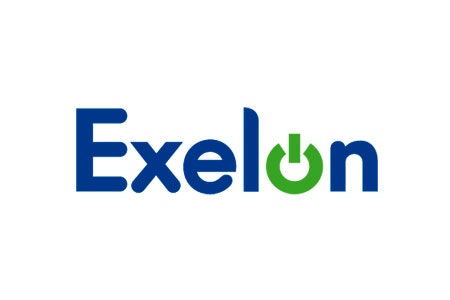Oil prices have been given a lot of scrutiny and consumers are not seeing relief at the pump. Nobody will argue that price fluctuations do not play games with consumers’ minds and wallets. Elon Musk, the CEO of Tesla Motors, has proposed that electric vehicles are a way to free ourselves from foreign sources of energy, and giant price fluctuations.
To import, or export that is the question
As supply increases, we should see gasoline prices come down, right? Wrong. We are seeing a huge supply glut of oil in the US, but refineries like Phillips 66 (NYSE:PSX) are exporting their final product to profit from higher global gasoline prices.
Hydraulic fracking has unlocked huge amounts of oil and natural gas in this country, but for these operations to be profitable oil prices need to be above $65 per barrel. As the miles driven in the US fall and the efficiency of our vehicles increases, the domestic demand for gasoline will continue to decline. However, just because the US is using less oil does not make up for increasing world demand.
Phillips 66 (NYSE:PSX) exports nearly 100,000 barrels of oil per day of refined gasoline and diesel to overseas markets. The company is now looking to at least double that amount by 2014. And it’s not just Phillips 66 (NYSE:PSX) that is doing this, as the US refining industry expects all fuel exports are likely to double by 2015. The refining business is stable within the US. These companies have thin margins at 2.7%, but make up for this in volume.
Phillips 66 (NYSE:PSX) has an extremely low payout ratio at 21%, and this gives the refiner a lot of room to grow with dividend increases.
Variable costs to generate electricity
Exelon Corporation (NYSE:EXC), one of the nation’s largest nuclear energy producers, has been a victim of its own success. The glut of cheap natural gas that the nation has seen caused this utility giant to see its profit margin squeezed as competitors were able to generate electricity for less. Exelon Corporation (NYSE:EXC) was forced to cut its dividend from $0.53 to $0.31 this year to maintain its credit rating.
Exelon Corporation (NYSE:EXC) has learned the hard way that the variable cost of electricity is the largest single factor in profitability over time. The company brought 404 megawatts (MW) of wind power and 31 MW of solar power online in 2012, and is expecting an addition 200 MW of solar to be added in 2013. Once solar panels are installed and generating electricity, they will be doing so as long as the sun is shining.
MIT professor Don Sadoway is now experimenting with large-scale liquid-metal batteries that solve the problem of intermittency that solar and wind power face. These batteries don’t wear out like traditional batteries, and are made from inexpensive, earth-abundant materials. This will make alternative energy an even more compelling argument.
Increased usage of electricity to power vehicles could be just what this industry needs to maintain a steady supply and demand for power. Exelon Corporation (NYSE:EXC) is facing mounting competition in its energy-generation business and has been following Duke Energy’s lead in acquiring more regulated distribution markets via merger.
Exelon Corporation (NYSE:EXC)’s merger with Constellation Energy gave the company more regulated markets and stable revenue, which now make up 65% of revenue, up from 55% prior to the merger. Going forward, we will see Exelon Corporation (NYSE:EXC) continue to invest in renewable generation capacity and focus on its regulated markets.
The alternative to gasoline
Tesla Motors Inc (NASDAQ:TSLA) and SolarCity Corp (NASDAQ:SCTY) are teaming up to build solar- powered supercharging stations across the US. These stations will charge vehicles and charge idle batteries that are ready to be swapped. When they are done doing that, the electricity will be sold back to the grid. The added benefit of these supercharging stations will keep Tesla Motors Inc (NASDAQ:TSLA) customers loyal when they are looking to purchase their next vehicle, as well as generate steady income with the electricity sold back to the grid.
Owners of Tesla Motors Inc (NASDAQ:TSLA) vehicles will be able to recharge their vehicle for 30 minutes to gain 200 miles of range, or swap out their cars’ battery for a fully charged one in 90 seconds. The cost for the 90-second swap is estimated at $60 to $80, approximately what you would pay for a full tank of gas. This 90-second option may have just opened the market for thousands of people taking trips a few states over to go see relatives.
Tesla Motors Inc (NASDAQ:TSLA)’s stock is valued as 22 times forward earnings, and the company just started making a profit in the previous quarter. Toyota Motor is the company to beat in this segment, with a market cap of nearly $200 billion, and a forward PE ratio of 15. Tesla Motors Inc (NASDAQ:TSLA) does have a lot of growth potential, but there is a lot of competition and billions of dollars at stake in the automotive market. I would wait until Tesla Motors Inc (NASDAQ:TSLA)’s valuation comes more inline with its business before pulling the trigger.
If this company is able to keep licensing out its technology to competitors, while producing cars with supply that cannot keep up with demand, Tesla will be a great investment going forward. However, its first-mover advantage may be be slipping away as the large automotive companies are researching their own technology and threaten to take Tesla Motors Inc (NASDAQ:TSLA)’s market share. General Motors Company (NYSE:GM) is rolling out its Cadillac ELR this year, which will compete against the same demographic as the Tesla Model S.
Haters be happy
Just the word electric car seems to bring out strong feelings for and against, with people arguing that the batteries are expensive, the cars look funny, and nobody wants them. One way to lower the price of a commodity is to lower demand. For gasoline, you can do this by either purchasing a non-gasoline powered vehicle, or encouraging your neighbors to purchase one.
As a person who does still own a vehicle with an exclusive internal combustion engine, I am stuck buying gasoline whether I like it or not. Owners of electric cars however, are slowly decreasing the demand for gasoline in this country, which should ultimately put downward pressure on the price of the commodity.
Foolish bottom line
As electric and natural-gas vehicles become a larger percentage of the American fleet, we should see continued demand decrease for the gasoline. Tesla has been able to: drum up some of the most loyal customers, license its technology to auto-majors, continually have demand outstrip supply, and maintain a “cool factor” with its cars. However, I will be waiting until this company comes down from the stratosphere and its fundamentals match up more closely to its stock price.
The article A Long-Term Bet Against Gasoline originally appeared on Fool.com and is written by Wes Patoka.
Wes Patoka has a position in Exelon. The Motley Fool recommends Exelon and Tesla Motors. The Motley Fool owns shares of Tesla Motors. Wes is a member of The Motley Fool Blog Network — entries represent the personal opinion of the blogger and are not formally edited.
Copyright © 1995 – 2013 The Motley Fool, LLC. All rights reserved. The Motley Fool has a disclosure policy.



